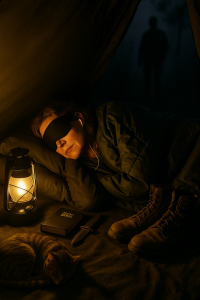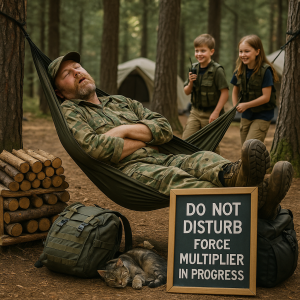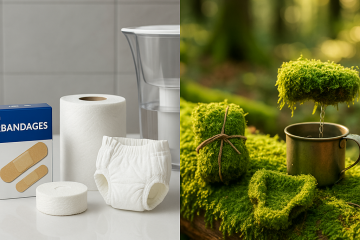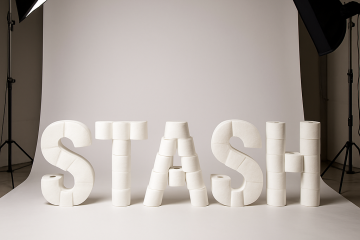
Sleeping is strategic
It’s 2 a.m. The raccoons are fighting in the backyard like it’s Fight Club for trash pandas. You’re staring at the ceiling, mentally reorganizing your food storage by expiration date, debating if powdered eggs are worth the existential crisis. Sound familiar?
Friend, if you think being prepared means you can run on three hours of sleep, a triple-shot cocoa, and sheer willpower—congrats! You’re officially a threat to yourself and others.
Let’s talk about the real, radical act of preparedness: sleep.
Sleep: The Original Force Multiplier
Lieutenant Colonel Dave Grossman doesn’t mince words. He’s spent decades training warriors, studying violence, and uncovering what breaks the human mind. And according to him, sleep deprivation is no joke—it’s a literal public safety hazard. In fact, he told me point blank: “So much of our crime, our mental illness, and our sickness in general could be drastically reduced if people just got proper sleep.”
He’s right. A study published in the Journal of Clinical Sleep Medicine found that chronic sleep deprivation can mimic or worsen mental health disorders like anxiety, depression, and even psychosis. And another study from the CDC reports that 1 in 3 Americans isn’t getting enough sleep. That’s not a lifestyle. That’s a slow-moving catastrophe.
Let me put it this way: if you’re stockpiling freeze-dried bacon but skipping eight hours of sleep, you’re not prepping—you’re gambling.
The Science of “Zombies Among Us”
Sleep deprivation isn’t just a nuisance—it turns your brain into a malfunctioning potato with delusions of competence. Research shows that after 24 hours without sleep, your cognitive performance drops to the same level as someone with a blood alcohol content of 0.10%. That’s legally drunk, folks. But with more twitching and fewer karaoke ballads.
Even just getting 6 hours of sleep a night for two weeks is enough to cause performance deficits equal to 48 hours of total sleep deprivation. And unlike hunger or thirst, your brain isn’t great at realizing it’s compromised. So while you think you’re ready to MacGyver a water filter out of a sock and a dream—you’re actually more likely to glue your hand to a raccoon.
Sleep in a Crisis? Yes. Here’s How.

Sleep is a force multiplier
Now, let’s address the bear in the bug-out tent. Sleep feels like a luxury when you’re worried about security, weather, or wondering if that sound was the wind… or Steve trying to practice his Morse code with a toaster.
But sleep isn’t optional when stuff hits the fan. It’s a non-negotiable asset. Here’s how to protect it, even when everything else is unstable:
-
Establish a watch system: Rotate shifts in a group so everyone gets a protected sleep window. Your mind can’t fight, flee, or fix anything on fumes.
-
Create sleep zones: Even in an emergency, boundaries matter. Use tarps, curtains, or even stacked totes to create a semi-private sleeping nook for your brain to feel safe enough to clock out.
-
Control light and sound: A blackout eye mask and earplugs are tiny items with huge power. Add them to your go-bag. Sleep is survival.
-
Guard routine like treasure: A consistent bedtime routine—even if it’s just wiping your face with a baby wipe and praying “Lord please no raccoons tonight”—helps signal to your brain that it’s time to shut down.
-
Use the buddy system: Have someone watch your back—literally. You can’t be on red alert 24/7 without eventually turning into a cautionary tale.
“But I’ll Sleep When I’m Dead…”
…said every person who burned out, broke down, or accidentally ate a scented candle thinking it was a protein bar.
Preparedness isn’t just about gathering gear or memorizing tactical acronyms. It’s about protecting the assets that matter most—your brain, your body, and your people. And none of those assets function without rest.
In fact, Dr. Matthew Walker, a neuroscientist and sleep expert, wrote in his book Why We Sleep that sleep is the single most effective thing we can do to reset our brain and body health each day. That’s not fluff. That’s function.
So go ahead. Take that nap. Build rest into your plans. Treat your bedtime like it’s sacred—because it is.
Rest Isn’t Weakness—It’s Wisdom
In a world where hustle is worshipped and sleep is mocked like it’s a sign of laziness, choosing to rest is downright rebellious. But maybe that’s what self-reliance really is—being wise enough to know your limits, and strong enough to protect them.
So next time someone asks why you’re napping instead of building a bunker, tell them this:
“Because even a warrior needs to recharge before the next battle.”
And then roll over and dream sweet dreams of well-lubricated can openers and non-expired batteries.


